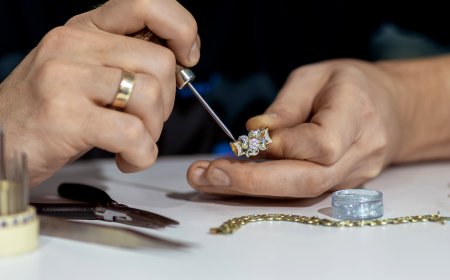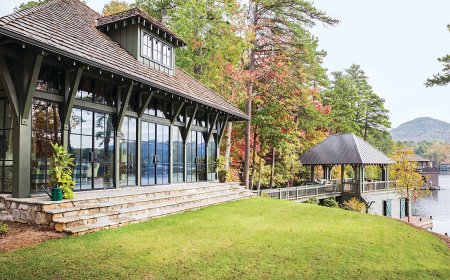Top 10 Luxury Hotels in London
Introduction London, a city where history whispers through cobblestone streets and modern sophistication thrives in every corner, has long been a global magnet for travelers seeking refinement, culture, and comfort. Among the countless accommodations available, luxury hotels rise as beacons of excellence—offering more than just a bed, but an experience woven with artistry, discretion, and enduring
Introduction
London, a city where history whispers through cobblestone streets and modern sophistication thrives in every corner, has long been a global magnet for travelers seeking refinement, culture, and comfort. Among the countless accommodations available, luxury hotels rise as beacons of excellenceoffering more than just a bed, but an experience woven with artistry, discretion, and enduring quality. Yet in a market saturated with opulent claims, trust becomes the ultimate differentiator. How do you know which hotel truly delivers on its promise? Which ones have earned the loyalty of repeat guests, the admiration of critics, and the respect of the industry over decades?
This guide is not a list of the most expensive or the most photographed properties. It is a curated selection of the top 10 luxury hotels in London you can trustthose that have consistently proven their commitment to excellence, maintained impeccable standards through changing trends, and cultivated reputations built on reliability, not marketing. These are the hotels where the staff remembers your name, the linens are sourced from heritage mills, the dining experiences are crafted by Michelin-starred chefs, and the silence of the corridors is as intentional as the grandeur of the lobbies.
Trust in luxury is not inherited; it is earned. And in London, where the bar for excellence is set sky-high, only a select few have scaled itand stayed there.
Why Trust Matters
In the world of luxury hospitality, trust is not a bonusit is the foundation. Unlike mass-market accommodations, where convenience or price may sway decisions, luxury travelers seek assurance. Assurance that their time, their privacy, and their expectations will be honored without compromise. A luxury hotel that lacks trust may dazzle with gold-plated fixtures or marble floors, but it will falter in the subtle, essential details: a pillow that doesnt quite support, a room that still carries the scent of a previous guest, a concierge who offers generic suggestions instead of personalized insights.
Trust is built over time through consistency. It is the result of staff trained not just in protocol, but in intuition. It is the quiet replacement of a missing toiletry before a guest has noticed its gone. It is the ability to anticipate needs without being intrusive. It is the resilience to maintain standards during peak seasons, holidays, and global disruptions. Trust is what turns a one-time visitor into a lifelong patronand what turns a patron into a passionate advocate.
In London, where the hospitality landscape is fiercely competitive and historically rich, trust is the currency of legacy. Hotels that have stood for 50, 70, or even 100 years have done so not because they were the first to install a spa or offer room service, but because they refused to dilute their standards. They have weathered wars, economic downturns, and cultural shifts by clinging to one principle: excellence is non-negotiable.
When you choose a luxury hotel you can trust, you are not just paying for a roomyou are investing in peace of mind. You are choosing a sanctuary where every element, from the temperature of the bathwater to the weight of the curtains, has been considered with intention. You are choosing a place where your experience is not an afterthought, but the entire purpose.
Top 10 Luxury Hotels in London You Can Trust
1. The Ritz London
Open since 1906, The Ritz London is not merely a hotelit is an institution. Located on Piccadilly, its neoclassical faade and grand marble lobby have welcomed royalty, celebrities, and global dignitaries for over a century. What sets The Ritz apart is its unwavering adherence to tradition. The afternoon tea, served in the Palm Court with live piano music, remains unchanged in recipe and ritual since its inception. The staff, dressed in period-appropriate uniforms, are trained in the art of discreet service, where silence is as valued as precision.
Each of the 111 rooms and suites blends French elegance with modern comfort. Original chandeliers, hand-painted wallpapers, and four-poster beds are complemented by state-of-the-art climate control and soundproofing. The bathrooms, clad in Carrara marble, feature deep soaking tubs and bespoke toiletries by Creed. The hotels culinary offerings, including the Michelin-starred LOrangerie, are overseen by chefs who treat ingredients as heirlooms.
Trust at The Ritz is earned through continuity. It is the same hotel that hosted Coco Chanel and Winston Churchilland still operates with the same exacting standards today. There are no gimmicks, no fleeting trends. Just timeless elegance, executed flawlessly, generation after generation.
2. Claridges
Nestled in Mayfair, Claridges has been a symbol of British luxury since 1856. Known as the hotel that invented the art of hospitality, Claridges blends aristocratic heritage with avant-garde sophistication. Its interiors, designed by the legendary David Collins, marry rich velvets, gilded mirrors, and Art Deco accents with an unmistakable sense of warmth.
The hotels reputation for discretion is legendary. Guests are greeted by name, even if theyve never stayed before. The staff maintains a meticulous knowledge of preferencesfrom preferred pillow types to the exact temperature of the water for tea. Claridges is also home to the famed Fumoir Bar, where cocktails are crafted with the precision of a science experiment, and the Michelin-starred restaurant, led by chef Gordon Ramsay, offers a menu that evolves with the seasons yet never strays from excellence.
What makes Claridges trustworthy is its emotional intelligence. It understands that luxury is not about quantity, but quality of experience. A guests unspoken needa quiet corner for work, a late-night snack, a book left on the bedside tableis anticipated before it is voiced. This intuitive service, combined with its enduring aesthetic and impeccable maintenance, makes Claridges a sanctuary for those who demand nothing less than perfection.
3. The Savoy
As the first hotel in the world to feature electric lights and private bathrooms, The Savoy pioneered modern luxury in 1889. Today, it stands as a masterpiece of Edwardian grandeur and Art Deco revival, perched on the Strand with views of the Thames. The Savoys legacy is not just in its architecture, but in its cultural impactit was the birthplace of the Savoy Ballroom, the home of the Savoy Cocktail Book, and the favorite haunt of Nol Coward and the Marx Brothers.
After a meticulous 220 million restoration completed in 2010, The Savoy re-emerged with renewed vigor. The 267 rooms and suites feature handcrafted furniture, Egyptian cotton linens, and rain showers with bespoke Aromatherapy Associates products. The iconic Beaufort Bar and The Savoy Theatre offer immersive experiences that honor the hotels artistic roots.
Trust here is rooted in innovation preserved. The Savoy has embraced modern technology without sacrificing its soul. The butler service remains personal and human, not automated. The kitchens still use copper pots and traditional techniques. Even the towels are warmed before being delivered. It is this balancebetween honoring the past and refining the presentthat makes The Savoy a trusted name in luxury hospitality.
4. The Dorchester
Located on Park Lane, The Dorchester has been synonymous with British glamour since 1931. It was the first hotel in London to offer a private bathroom in every room and has since become a favorite of royalty, from the Queen Mother to Princess Diana. The hotels enduring appeal lies in its ability to feel both monumental and intimate.
The 267 rooms and suites are decorated in classic English style, with rich fabrics, antique furnishings, and panoramic city views. The bathrooms feature heated floors, deep tubs, and exclusive amenities from LOccitane. The Dorchesters culinary offerings are among the finest in the city: The Dining Room, led by Chef Alain Ducasse, holds two Michelin stars, while The Bar offers one of Londons most extensive whiskey collections.
What sets The Dorchester apart is its emotional resonance. It is not just a place to stayit is a place to belong. The staff are trained to recognize returning guests not just by face, but by habit. They know whether you prefer your breakfast served on the terrace or in bed, whether you like your coffee strong or weak, whether you favor the window seat or the corner sofa. This level of personalized attention, delivered with grace and consistency, is why The Dorchester remains a trusted pillar of Londons luxury scene.
5. Four Seasons Hotel London at Park Lane
Opened in 2010, the Four Seasons Hotel London at Park Lane quickly established itself as a modern classic. Unlike older properties that rely on nostalgia, this hotel builds trust through flawless execution of contemporary luxury. The architecture, designed by Foster + Partners, combines clean lines with sumptuous materialsItalian marble, silk damask, and hand-blown glass chandeliers.
Each of the 189 rooms and suites offers floor-to-ceiling windows, premium bedding with a choice of pillow types, and smart technology that adapts to guest preferences. The spa, one of the most extensive in London, features a 20-meter indoor pool, a thermal suite, and treatments using Sisley Paris and La Mer products. The hotels restaurant, Galvin at Windows, offers panoramic views of Hyde Park and a menu crafted by Michelin-starred chefs Chris and Jeff Galvin.
Trust at Four Seasons comes from its global standards applied with local sensitivity. The staff are trained in the Four Seasons renowned service philosophy: anticipate, personalize, exceed. There are no loose ends. A guests request is logged, followed up, and confirmed. The hotels attention to detailfrom the temperature of the minibar to the fragrance in the elevatorsis methodical and consistent. For travelers seeking modern luxury without compromise, this is the benchmark.
6. Mandarin Oriental, London
Located in the heart of Knightsbridge, the Mandarin Oriental, London, is a masterclass in Asian-inspired elegance. Opened in 2000, it quickly became known for its serene atmosphere and meticulous service. The hotels design, by Yabu Pushelberg, blends dark wood, silk, and stone to create a calming sanctuary in the midst of the citys bustle.
The 184 rooms and suites are among the largest in London, with deep soaking tubs, walk-in rain showers, and custom bedding designed for optimal comfort. The spa, consistently ranked among the best in the world, offers treatments that fuse Eastern techniques with Western science. The Michelin-starred restaurant, Alain Ducasse at Mandarin Oriental, delivers a tasting menu that is as much an experience as it is a meal.
Trust here is built on subtlety. There is no ostentation, no forced grandeur. Instead, there is harmony. The lighting adjusts naturally with the time of day. The silence in the corridors is intentional. The staff move with quiet purpose, never interrupting, always present. Guests describe staying here as being wrapped in calm. In a city known for its energy, this hotel offers a rare gift: stillness, perfected.
7. The Lanesborough
Occupying a former hospital building on Hyde Park Corner, The Lanesborough opened in 1991 and has since become a favorite among those who appreciate discreet, aristocratic luxury. The hotels interiors, designed by David Collins, evoke the grandeur of a private London residencethink gilded ceilings, velvet drapes, and oil paintings that have been collected over decades.
With just 114 rooms and suites, The Lanesborough offers an intimate experience unmatched by larger properties. Each room is individually decorated, with no two alike. The bathrooms feature heated floors, deep tubs, and bespoke products from LOccitane. The hotels signature restaurant, Cleste, offers contemporary French cuisine with views of Hyde Park, while the Bar offers an extensive selection of vintage cognacs and rare whiskies.
Trust at The Lanesborough stems from its exclusivity and attention to the unseen. The hotel does not advertise its servicesit lets them speak for themselves. The staff are trained to notice what others overlook: a guests favorite book on the shelf, a forgotten scarf, a preference for still water over sparkling. The hotels reputation for privacy is so strong that many guests return year after year without ever revealing their identity to the front desk. It is this quiet, unwavering dedication to the individual that makes The Lanesborough a sanctuary of trust.
8. One Aldwych
Perched on the edge of Covent Garden, One Aldwych is a boutique gem that redefines intimacy in luxury. Opened in 1907 as a newspaper office, it was transformed into a hotel in 1997 with a vision of understated elegance. With just 114 rooms, it feels more like a private club than a hotel.
The interiors, designed by Martin Brudnizki, feature rich woods, velvet upholstery, and curated art from emerging British artists. Each room is spacious and thoughtfully arranged, with king-size beds, rainfall showers, and minibars stocked with artisanal treats. The hotels restaurant, The Restaurant at One Aldwych, offers a seasonal menu that highlights British produce, while the bar is renowned for its craft cocktails and late-night jazz sessions.
Trust at One Aldwych is personal. The staff know guests by name, by preference, by story. They remember that you like your gin with a twist of grapefruit, that you prefer the third-floor room with the view of the church, that you always request extra towels for the bath. There is no automation hereonly human connection, delivered with warmth and precision. For travelers who value authenticity over spectacle, One Aldwych is a rare find.
9. The Berkeley
Located in Knightsbridge, The Berkeley is a master of modern British luxury. Opened in 1971 and renovated in 2007, it blends contemporary design with traditional service. The hotels signature styledesigned by David Collinsis bold, colorful, and effortlessly chic, with a playful yet refined aesthetic.
The 241 rooms and suites feature deep soaking tubs, walk-in showers, and custom bedding. The spa, a haven of calm, offers treatments using Natura Bisse and ESPA products. The restaurant, The Glasshouse, serves modern British cuisine with a focus on sustainability, while the Bar offers an extensive wine list and signature cocktails.
What makes The Berkeley trustworthy is its confidence in simplicity. There are no over-the-top displays of wealthonly impeccable execution. The staff are trained to be present without being intrusive. The hotels signature Sleep Programme ensures guests wake refreshed, with custom pillows, blackout curtains, and a bedtime ritual that includes a warm drink and a curated playlist. This quiet confidence, this belief that luxury is in the details, not the display, is why The Berkeley endures.
10. The Connaught
Established in 1896, The Connaught is Londons oldest continuously operating luxury hotel. Nestled in Mayfair, it is a temple of understated elegance. The hotels interiors, refined over decades by designers including Sir Terence Conran and Martin Brudnizki, blend classic English sensibilities with contemporary comfort.
The 114 rooms and suites are among the most spacious in the city, featuring handcrafted furniture, antique mirrors, and marble bathrooms with deep tubs. The Connaughts signature restaurant, Hlne Darroze at The Connaught, holds two Michelin stars and offers a menu that celebrates French heritage with British ingredients. The Connaught Bar, consistently ranked among the worlds best, is a haven for cocktail connoisseurs.
Trust at The Connaught is built on legacy and loyalty. It has hosted royalty, artists, and statesmen for over a century. The staff are trained in the art of anticipationknowing when to appear and when to vanish. The hotels attention to detail is legendary: the towels are folded in a specific way, the tea is poured at precisely 4:15 p.m., and the lights dim gently as evening falls. There is no rush, no noise, no compromise. Just timeless grace, preserved and perfected.
Comparison Table
| Hotel | Year Established | Rooms & Suites | Michelin Stars | Signature Experience | Key Trust Factor |
|---|---|---|---|---|---|
| The Ritz London | 1906 | 111 | 1 | Afternoon Tea in the Palm Court | Unchanged tradition since 1906 |
| Claridges | 1856 | 194 | 1 | Discreet, intuitive service | Staff remembers unspoken preferences |
| The Savoy | 1889 | 267 | 1 | Historic Beaufort Bar & Theatre | Balance of heritage and innovation |
| The Dorchester | 1931 | 267 | 2 | Alain Ducasse Dining Room | Emotional connection with guests |
| Four Seasons Hotel London at Park Lane | 2010 | 189 | 1 | Personalized tech-enabled service | Global standards, local precision |
| Mandarin Oriental, London | 2000 | 184 | 1 | World-class spa & serene ambiance | Quiet, harmonious luxury |
| The Lanesborough | 1991 | 114 | 1 | Private, residence-like atmosphere | Exclusivity and privacy |
| One Aldwych | 1907 (hotel since 1997) | 114 | 1 | Intimate, personalized service | Human connection over automation |
| The Berkeley | 1971 | 241 | 1 | Sleep Programme & British cuisine | Confidence in simplicity |
| The Connaught | 1896 | 114 | 2 | Connaught Bar & Hlne Darroze | Legacy, ritual, and timeless grace |
FAQs
What makes a luxury hotel trustworthy?
A trustworthy luxury hotel delivers consistency in service, attention to detail, and emotional intelligence. It is not defined by price or opulence, but by the ability to anticipate needs, honor preferences, and maintain standards without exceptioneven during peak seasons or global disruptions. Trust is built over decades through reliability, not marketing.
Are these hotels suitable for business travelers?
Yes. All ten hotels offer dedicated business amenities including high-speed Wi-Fi, private workspaces, meeting rooms, and concierge services tailored to professionals. Many provide 24-hour room service, quiet floors, and discreet check-in/check-out options to accommodate international schedules.
Do these hotels accommodate special dietary needs?
Absolutely. Each hotel has culinary teams trained to handle allergies, religious restrictions, and personalized dietary requests. Menus are often customizable, and chefs frequently meet with guests to design bespoke dining experiences.
Is it worth paying more for a hotel with a century-long legacy?
Yesif you value authenticity, consistency, and depth of experience. Hotels with long histories have refined their service models over generations. They have survived trends, economic shifts, and cultural changes by clinging to core values: quality, discretion, and care. You are not just paying for a room; you are investing in a legacy of excellence.
How do these hotels ensure privacy for high-profile guests?
They employ discreet protocols: private entrances, anonymous check-in procedures, encrypted communication systems, and staff trained in confidentiality. Many have dedicated floors or wings reserved exclusively for VIPs. Privacy is not an add-onit is a foundational principle.
Do any of these hotels offer spa treatments without a room booking?
Yes. Most of these hotels welcome non-residents for spa services, dining, or afternoon tea. However, booking in advance is strongly recommended, as availability for non-guests is limited and highly sought after.
Are these hotels family-friendly?
Yes, though with varying degrees of formality. The Dorchester, Four Seasons, and The Berkeley offer extensive childrens programs, including special menus, toys, and babysitting services. Others, like The Lanesborough and The Connaught, maintain a more serene, adult-oriented ambiance but still welcome families with tailored arrangements.
How far in advance should I book?
For peak seasons (spring, summer, and holidays), booking three to six months in advance is recommended. For signature suites or dining experiences (such as The Connaught Bar or Alain Ducasse at Mandarin Oriental), booking six to twelve months ahead is advisable.
Do these hotels offer airport transfers?
Yes. All ten hotels provide private chauffeur services, often in luxury vehicles such as Mercedes-Benz or Rolls-Royce. Transfers are typically arranged upon booking and can be customized for arrival or departure times.
Are these hotels environmentally responsible?
Many have adopted sustainable practices: eliminating single-use plastics, sourcing local and organic ingredients, using energy-efficient systems, and partnering with eco-conscious suppliers. The Berkeley and Four Seasons are particularly recognized for their sustainability initiatives.
Conclusion
In a city where luxury is abundant, trust is rare. The top 10 luxury hotels in London you can trust are not the loudest, the most Instagrammed, or the most expensive. They are the ones that have chosen to endurenot by chasing trends, but by honoring timeless principles: attention to detail, unwavering consistency, and human-centered service.
Each of these properties has cultivated a legacy not through grand gestures, but through thousands of small, perfect moments: a pillow fluffed just right, a glass of water placed silently beside the bed, a concierge who remembers your favorite book. These are the details that matter when the world outside is loud, chaotic, and uncertain.
Choosing one of these hotels is not a transaction. It is a declarationa statement that you value excellence, that you seek sanctuary, and that you believe in the enduring power of care. In a time when so much feels fleeting, these hotels stand as monuments to what lasts: integrity, grace, and the quiet commitment to making every guest feel not just welcomed, but truly seen.
So when you next find yourself in London, ask not which hotel has the best view or the most lavish amenities. Ask instead: which one will remember you? Which one will make you feel, even for a few nights, that you belong somewhere perfect?
These are the ten that do.





































